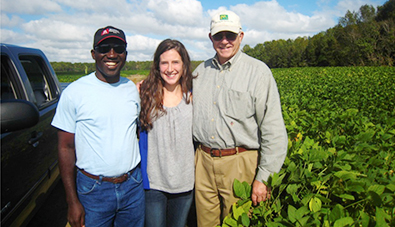By Robert Dilday
A year after Virginia Baptists launched an initiative to battle the scourge of malaria in West Africa, nearly 20,000 mosquito nets have been distributed there — helped in part by a recent contribution from an Oklahoma-based organization with similar goals.
More than Nets, a partnership between the Baptist General Association of Virginia and the Ghana Baptist Convention, aims to distribute 100,000 mosquito nets by the end of 2014 and provide education about malaria prevention, while also starting 300 new churches in Yendi, a municipal district in northeastern Ghana.
 Malaria is the number one cause of death in Ghana, and many medical authorities believe insecticide-treated mosquito nets are the most cost-effective way to prevent malaria transmission.
Malaria is the number one cause of death in Ghana, and many medical authorities believe insecticide-treated mosquito nets are the most cost-effective way to prevent malaria transmission.
His Nets, a Norman, Okla.-based ministry founded in 2004, recently contributed 4,000 treated mosquito nets to the Virginia Baptist initiative. In the past eight years, His Nets has distributed nearly 135,000 nets across Africa.
“His Nets is excited to work with MTN to achieve our common mission and purpose,” said Andi Thomas Sullivan, the Washington-based executive director of His Nets. “Both MTN and His Nets are striving to make malaria a thing of the past by delivering insecticide-treated bed nets into the hands of people who need them most. We are motivated by the Christian imperative to love our neighbors as ourselves and one way we choose to express that love is to distribute bed nets.”
The two groups share more than a common goal. Brian Taliaferro, a Tappahannock, Va., farmer who sits on His Nets’ board of directors, helped launch the Virginia Baptist initiative in January 2013. Taliaferro is a member of Beale Memorial Baptist Church in Tappahannock.
Dean Miller, disaster relief and Virginia missions coordinator for the Virginia Baptist Mission Board, said almost 20,000 nets have been distributed in more than 100 villages in the Yendi district. More than $150,000 had been raised for the project by the end of 2013, he added.
“There will be at least four teams — representing about 40 people and eight churches — traveling to Ghana this spring with more going in the fall,” Miller said.
Sullivan said the groups’ “saturation strategy” holds promising possibilities.
“By engaging in a massive coverage of nets, the incidence of malaria sickness and death should be drastically reduced in a measurable way,” she said. “Not only will this improve the lives of people vulnerable to malaria, this will also have massive research potential for global malaria eradication efforts.”
